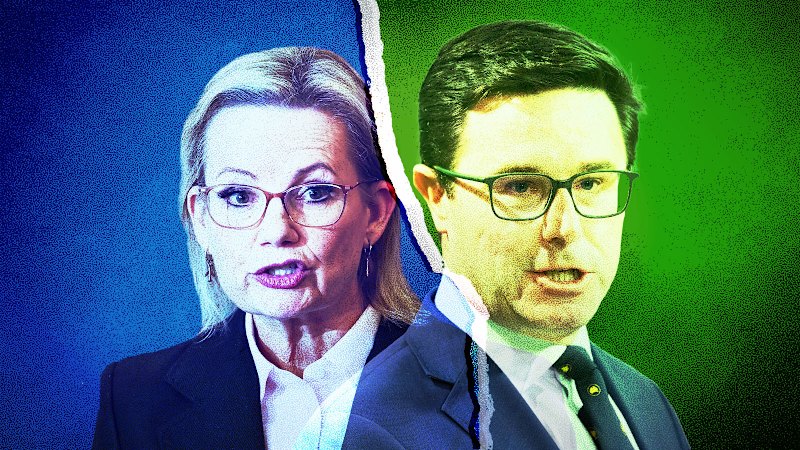
The Nationals have taken a decisive stance against the Liberal Party’s commitment to achieving net zero emissions by 2050, potentially jeopardizing the leadership of Sussan Ley and the unity of the Coalition. On November 27, 2022, David Littleproud, along with then Nationals MP Jacinta Nampijinpa Price, announced the party’s formal opposition to the Voice to Parliament. This latest move against net zero emissions marks a significant shift and raises questions about the future of the Coalition.
Littleproud’s announcement comes as the Nationals seek to assert their independence from the Liberal Party. The decision to oppose net zero emissions has been met with little surprise, given the party’s history of diverging from Liberal policies. The implications of this stance are profound, as it puts Sussan Ley in a precarious position. She now faces a critical decision: align with the Nationals and risk appearing weak or carve out a distinct position that could further divide the Coalition.
One of the most striking aspects of Littleproud’s leadership is his willingness to take bold, uncompromising positions on crucial policy issues. While he argues that his actions are in the best interests of the Nationals and their constituents, there are wider implications for the Coalition. This is especially concerning given that the parties recently navigated a challenging period of internal strife, including a brief split and subsequent reformation.
The current political landscape in Australia is one of heightened tension. With the Nationals moving away from the Liberal Party’s environmental commitments, the dynamics of their alliance are under strain. Littleproud’s leadership style has drawn scrutiny, particularly regarding his unilateral decision-making that challenges the cohesion of the Coalition.
The ramifications of this policy divergence could reverberate throughout the political spectrum. The Liberal Party, under Ley’s guidance, may now have to reassess its stance on climate policy. If the Liberals choose to follow the Nationals’ lead, it could alienate voters who prioritize environmental sustainability. Conversely, if they maintain their commitment to net zero emissions, it risks fracturing the Coalition.
As the political landscape evolves, all eyes will be on Ley and her response to the Nationals’ latest move. The coming weeks will be critical in determining whether the Coalition can maintain its unity in the face of such significant policy disagreements. With the next election on the horizon, the stakes have never been higher for both parties as they navigate this complex and contentious issue.
The Nationals’ recent actions highlight the ongoing struggle within Australian politics over climate policy and the future direction of the Coalition. As the debate intensifies, the impact on leadership dynamics and party unity remains to be seen.







